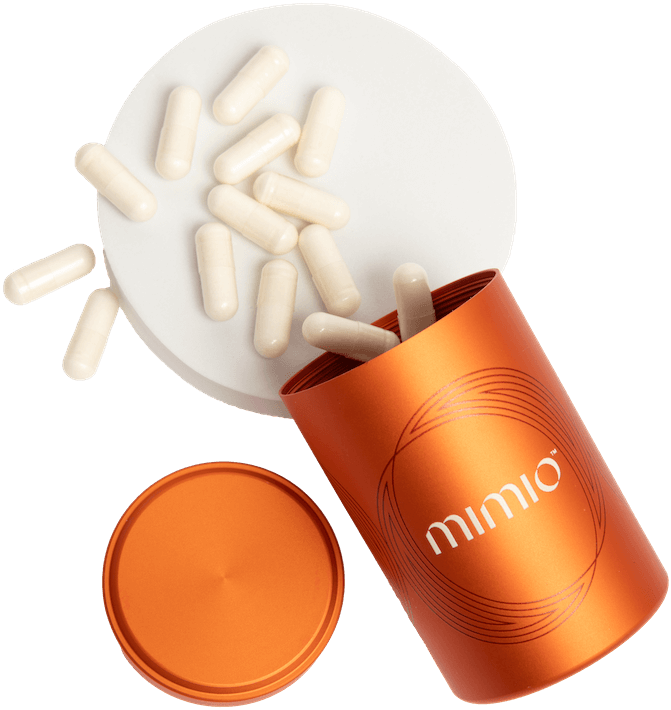The Science of Longevity: Diet, Stress, Community & Movement
Longevity isn’t just about adding years to your life—it’s about adding life to those years. As modern science dives deeper into what truly supports long-term health, four key pillars consistently emerge: diet, stress management, community, and movement. Together, these lifestyle factors create a blueprint for vitality that isn’t just theoretical—it’s deeply rooted in biology.
Welcome to the science of longevity. Let’s discuss each of those 4 key pillars, and understand how to implement them to boost your lifespan.
ADiet That Fuels Lifespan: The Mediterranean Model:
When it comes to longevity-enhancing diets, one model stands tall: the Mediterranean diet. More than a buzzword, this plant-forward, fat-friendly, flavor-packed approach has been studied extensively for its power to promote health and prevent chronic illness.
What Makes It So Effective?
-
Plant-Based Emphasis: Fruits, vegetables, legumes, and whole grains form the base, delivering fiber, antioxidants, and phytonutrients that combat inflammation and oxidative stress.
-
Healthy Fats: Instead of saturated fats, it champions olive oil, nuts, seeds, and omega-3-rich fish—essential for brain and heart health.
-
Minimal Processed Foods: Real, whole foods are the norm. Fast food and heavily refined carbs take a back seat.
-
Social Eating: Meals are communal, leisurely, and emotionally satisfying—a crucial aspect often overlooked in Western cultures.
Clinical research backs this up. Studies show the Mediterranean diet reduces the risk of cardiovascular disease, Type 2 diabetes, neurodegenerative disorders, and even overall mortality. In fact, as Dr. Chris Rhodes emphasizes, “Its plant-based ingredients and healthy fats aren’t just good—they’re foundational for preventing chronic disease and extending lifespan.”
Stress: The Silent Lifespan Shortener
Chronic stress wears down your body at a cellular level. From disrupting hormonal balance to accelerating cellular aging, stress isn’t just a mental burden—it’s biological sabotage.
But science shows there’s hope. Stress-reducing practices can have a measurable impact on lifespan. Meditation, breathwork, and mindfulness aren’t fringe—they’re essential. Why?
-
Lower cortisol levels
-
Reduced inflammation
-
Improved sleep and hormonal health
Even social connection—a key stress buffer—plays a massive role here. People with strong support systems tend to live longer, healthier lives. So yes, your weekly coffee date might be doing more than just boosting your mood.
Community: The Underrated Longevity Superpower
In regions known as Blue Zones—places with the highest concentrations of centenarians—there’s one common thread: strong social bonds. Whether it’s shared meals, multigenerational homes, or regular check-ins with friends and family, these deep-rooted connections impact everything from stress resilience to purpose in life.
Why does this matter biologically?
-
Lower rates of depression and anxiety
-
Better immune function
-
Higher adherence to healthy habits
Put simply: community keeps you alive—literally.
Movement: The Natural Regenerator
Let’s clear something up: exercise isn’t about punishing your body. It’s about activating it.
Moderate physical activity does more than build strength or endurance—it improves cellular turnover, boosts mitochondrial health, and can even reduce senescent "zombie" cells, those dysfunctional cells that linger and cause inflammation and aging.
A mix of:
-
Cardiovascular training (e.g., walking, cycling)
-
Strength work (e.g., resistance bands, bodyweight training)
-
Mobility practices (e.g., yoga or tai chi)
all help the body stay metabolically flexible, hormonally balanced, and resilient at every stage of life.
And a bonus 5th pillar: Sleep - The Unsung Longevity Hero
In the conversation about longevity, sleep often gets overshadowed by trendier topics like diet and exercise. But make no mistake—quality sleep is a biological non-negotiable for a long, vibrant life.
Here’s why:
-
Cellular Repair: Sleep is when your body goes into maintenance mode, repairing tissue, rebalancing hormones, and reinforcing immune function.
-
Brain Detox: During deep sleep, your brain clears out toxic proteins linked to cognitive decline and neurodegenerative diseases.
-
Longevity Hormones: Growth hormone and melatonin, both crucial to cellular longevity, are primarily released during restful sleep.
Lack of quality sleep isn’t just exhausting—it increases your risk of heart disease, diabetes, obesity, and premature aging. Aim for 7–9 hours a night, create a consistent wind-down routine, and ditch blue light before bed to help your body do what it’s designed to do: repair, regenerate, and protect.
The Sleep & Longevity Connection:
|
Sleep Factor |
Biological Benefit |
Longevity Impact |
|
Deep Sleep (Stages 3–4) |
Cellular repair, hormone regulation |
Muscle maintenance, youth preservation |
|
REM Sleep |
Brain detox, memory consolidation |
Cognitive longevity |
|
Consistent Sleep Schedule |
Balanced circadian rhythms, hormone stabilization |
Reduced risk of metabolic disorders |
|
7–9 Hours/Night |
Optimal immune function, inflammation reduction |
Lower mortality risk |
Tip: Keep your room cool, dark, and screen-free before bed to naturally boost melatonin levels.
Hormesis: Stress That Heals
Not all stress is bad. In fact, a little bit of the right kind can activate your body’s built-in repair systems. This concept is called hormesis, and it’s central to the science of longevity.
What is hormesis? It’s the biological phenomenon where a low dose of stress actually strengthens the body. Think:
-
Fasting → Triggers autophagy and cellular recycling
-
Cold exposure → Boosts mitochondrial efficiency
-
Heat therapy (saunas) → Enhances detoxification and cardiovascular health
-
Exercise → Improves metabolic resilience
These stressors push your body just enough to grow stronger without causing damage—like a vaccine for your cells. Mimicking these effects without full commitment (like a 36-hour fast) is exactly what biomimetic innovations, such as Mimio Biomimetic Cell Care, aim to replicate.
Incorporating gentle, intentional stressors can activate your longevity switch, building resilience from the inside out.
Hormetic Stressors and Their Benefits
|
Hormetic Stressor |
Mechanism |
Longevity Benefit |
|
Intermittent Fasting |
Triggers autophagy & fat adaptation |
Cellular cleanup, metabolic reset |
|
Cold Exposure |
Activates brown fat, increases resilience |
Mitochondrial function, immune support |
|
Sauna/Heat Therapy |
Induces heat shock proteins |
Detoxification, cardiovascular health |
|
Moderate Exercise |
Mild oxidative stress |
Stronger heart, improved metabolism |
Reminder: The goal isn’t to suffer—it’s to gently challenge your biology so it adapts, repairs, and thrives.
Bringing It All Together: The Longevity Formula
Here’s what decades of data and ancient wisdom agree on: living longer comes from daily choices that support your body’s natural capacity to heal and regenerate.
Your Longevity Checklist:
-
Eat mostly plants, with healthy fats and minimal processing (hello, Mediterranean diet)
-
Move your body every day—even a walk counts
-
Prioritize connection and purpose
-
Manage stress through mindfulness, sleep, and stillness
And for those seeking an extra edge? Products like Mimio Biomimetic Cell Care are designed to support your cellular health by mimicking the benefits of fasting—without the hunger. Think of it as a tool to help activate your body’s natural longevity pathways, even on your busiest days.
The Science Is Clear
Longevity isn’t just about more candles on the cake—it’s about how you feel while blowing them out. The science of longevity points to simple yet powerful interventions: eat well, move often, connect deeply, and rest intentionally.
Because the future of health isn’t about hacking your biology—it’s about honoring it.



